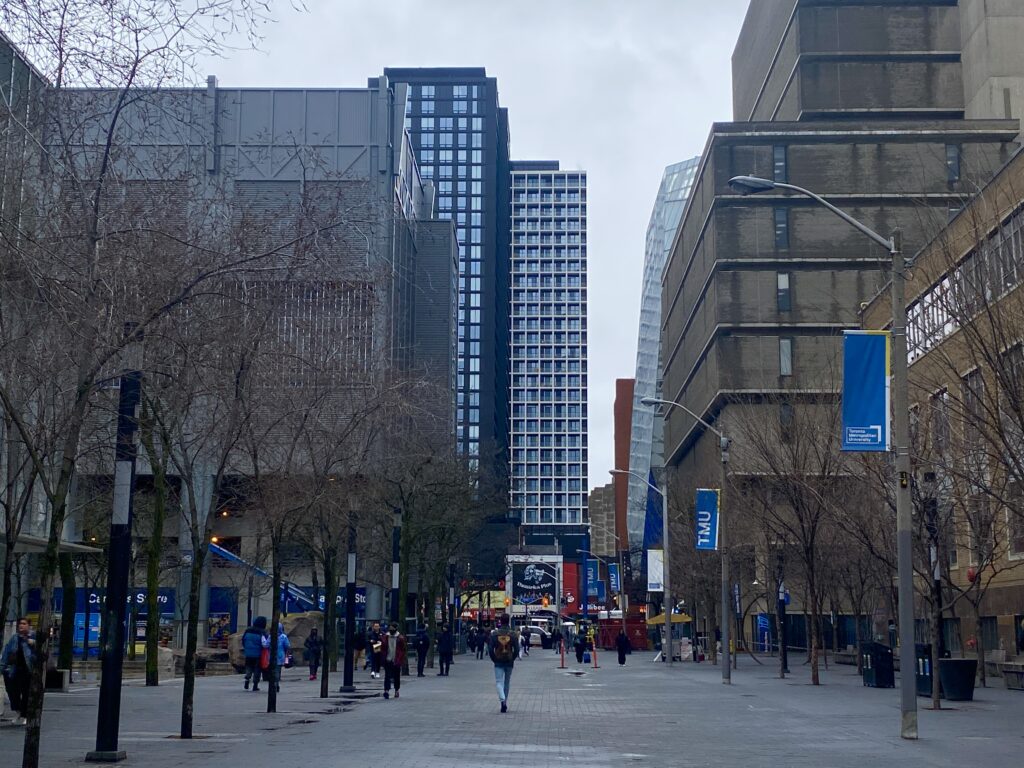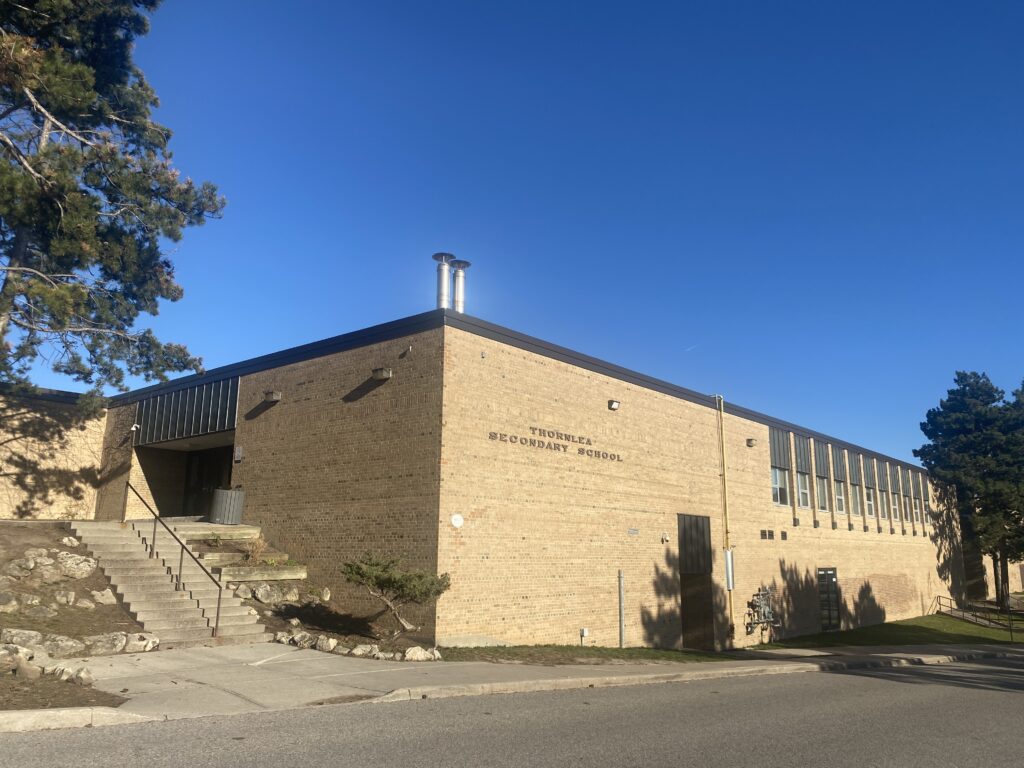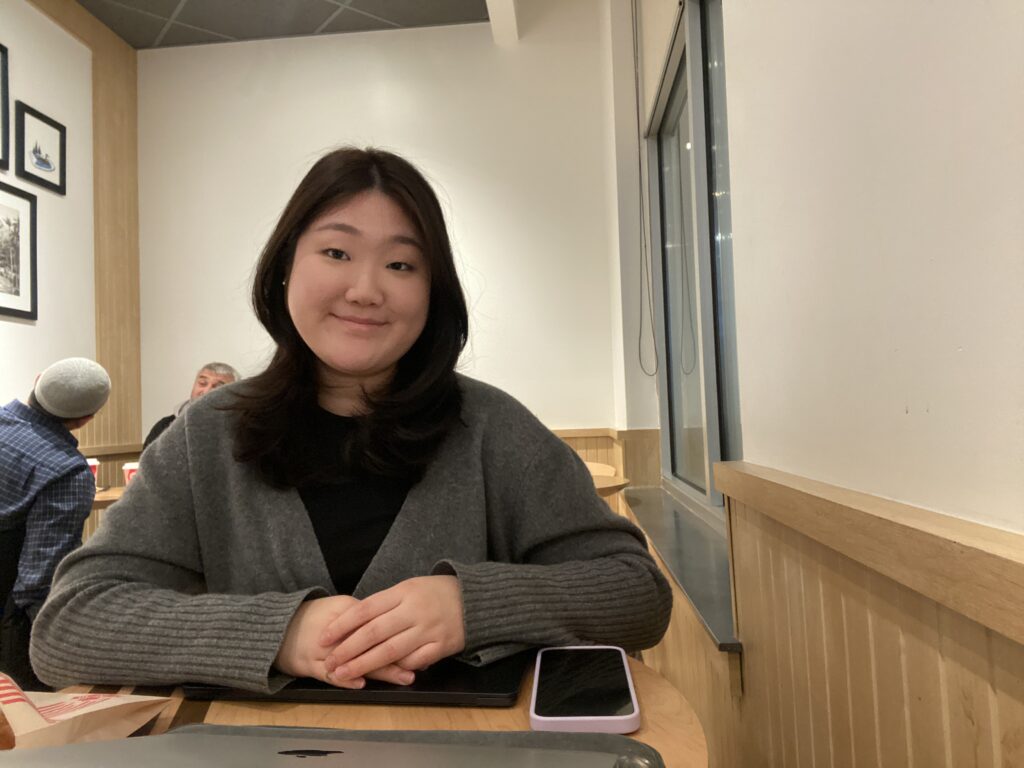By Lois Yoo
It’s a cold and windy February afternoon and inside TenRen’s Tea, a bubble tea shop in Richmond Hill, music is booming loudly, but the cheerful laughter of two young women rises above the noise. From how they are relaxingly sipping on their bubble tea, one might not expect them to be high school seniors waiting to receive university acceptance letters. While these two girls, Erin Yoon and Lisa Ahn, may seem bubbly on the outside, they do have their worries. Sitting side by side in a booth, they say getting good marks is easier than ever. The only problem? Everyone is getting that boost. “A one to two per cent difference,” Ahn worries, “What if I don’t get into uni because of that?”
According to the Common University Data Ontario, which compiles data from Ontario Universities, the average marks needed to get into university are indeed on the rise. Isolating data from the four major universities located in the GTA – the University of Toronto, York University, Toronto Metropolitan University and OCAD University – the database shows that over the past four years, the percentage of students entering university with an average of 95 or more has tripled. What Ahn and Yoon are going through is a common experience amongst grade 12 students in the GTA and is expected to be a long-term issue as the upward trend in averages continues. While the reason is complex, it’s clear high school students are getting a major boost in their grades.
Scott O’Neil, director of admissions at Toronto Metropolitan University, says grade inflation is a prominent subject of discussion amongst university admissions leaders. O’Neil says there has been a well-documented and steady incremental increase in high school marks. While the “spike” that occurred during the pandemic is receding, grades are still notably much higher than those recorded a decade ago. O’Neil recalls that six or seven years ago, most applicants had high school averages of 80 per cent or better. Now, that number’s gone way up.

Students and parents are frustrated that the bar for what constitutes a stellar mark has been raised so high. Esther Sung, a tutor in Newmarket, says she recently received a message from a parent with concerns about her child’s average. The mark was a low 90. And it’s not just the seniors. Even Sung’s grade nine and 10 students refer to a low 90s mark as just “okay.”
Students are doing whatever it takes to receive better grades. Yoon says that some of her peers will opt for e-learning or night school to dodge exams. Some will even pay hundreds for Ontario Virtual School, one of many accredited online private schools in the province. According to O’Neil, many universities don’t distinguish between courses taken in traditional formats versus online or at private schools. He says taking classes outside of the traditional school setting has become a shortcut to higher grades. However, O’Neil says that if a student can’t earn grades through a standard high school course load, it may be challenging for them to excel in university.
Many associate grade inflation with the COVID-19 pandemic. Yoon and Ahn say that after the pandemic began, teachers became more lenient with grades and cut students more slack in the classroom, like offering extra time for tests. Seoyeon Yoo, a second-year student at the Schulich School of Business, had a similar experience at Thornlea Secondary School. She says, “High school during COVID was a joke. We got a pass for everything.” During distance learning, all her assessments were “so much easier.” She recalls math assignments needed to be completed in class, but teachers didn’t make the students keep their cameras on, so her peers would text each other and copy answers. Even though the transition to online learning was sudden, students quickly found new and easy ways to cheat.


Angela Kang, another graduate from Thornlea Secondary School, says school looked different during the pandemic. Every day, Kang, still in her pyjamas, would sit in her room with her laptop open on her desk. She’d attempt to focus on her teacher’s lesson, but listening through hours of Zoom calls was tough. After school, she had extra time to watch TV or hang out with her family, since studying was no longer a source of stress, nor a priority. What was supposed to be the most difficult years of high school became a time of rest. While teachers were scrambling to find new methods to teach virtually, she says students cruised through the simplified curriculum.
In contrast to students, parents’ perspectives on distance learning varied. Kang says both she and her parents felt relieved that her senior years in high school were during the pandemic. Wendy Cai, a mother of two living in Richmond Hill, however, says when her first daughter was in grade 12, she had mixed feelings about remote learning. While she was scared in-person classes may be dangerous for her child, she was also upset that academics may be sacrificed by distance education.
With so many high marks on applications, some universities are trying a more holistic approach, requiring students to submit video interviews, supplementary applications and portfolios, but many continue to rely solely on marks. O’Neil said that there are lots of discussions about holistic assessments by admissions offices, but it’s easier said than done. “If you’ve got a program that has 100 seats and two thousand applicants, holistic needs to become an integer at some point,” O’Neil says. “You need to be able to apply a rubric and have structure to it.” Even a holistic approach requires standards, which can be difficult to apply across hundreds or even thousands of applicants. It’s not as simple as assessing a set of numbers.
Yoo believes that students don’t need to find dishonest ways to boost their marks. She says students actually do have the potential to succeed if they put in the effort, but educators need to stop babying them. “Even a fourth grader can do my work,” she says.
Inside TenRen’s Tea, Yoon and Ahn carry on giggling until the very last slurp of their bubble tea. They’ve reached a point where they can joke about this whole situation. “If I’m gonna die in business school,” Yoon says of applying to universities with beautiful campuses full of leafy trees. “It should be in a pretty place.” The journey to university may be a rough one, but the girls have put their worries aside. They dream of campus life, hoping it’ll be better than high school. Ahn, who applied to social and life science programs, has already heard back from her top choices. On the other hand, Yoon is still waiting for her top choice to see if her marks set her “above average” in the pool of applicants.
